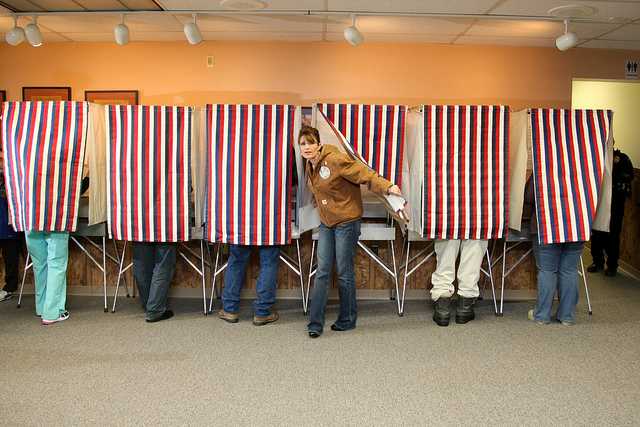It is illegal to drive under the influence of drugs and alcohol.
We all know why there is a law addressing this: because it is dangerous to drive when drunk. Alcohol affects our judgement and impairs our ability to make quick and wise decisions.
Now the analogous counterpart: when we vote, we are also voting under the influence. But under the influence of what?
When voting time comes around, there is the obvious and blatant influence of the election campaigns. These campaigns set out to attract voters to a particular political party—largely through big promises and by attacking the opposition.
An election takes place at a certain moment in history, imbibed with the social issues of that moment. Naturally, politicians need to address the concerns of the populace, but they can also use these concerns as a means of emotional manipulation. By playing to people’s fears, they can win their confidence.
These are the most visible influences on voters, but there are still yet deeper ones.
In any election, no matter who we vote for, we are also voting under the influence of an array of ideologies and emotions. We are voting under the influence of: materialism, hedonism, egoism, economic rationalism, nationalism, prejudice, fear, greed—the list goes on.
We are deeply affected by these “isms” and feelings; they color the very lens through which we see the world and hence, also, the ballot paper. These forces are largely unconscious.
So, when voting time comes and we make our choice, we think we are making a conscious and rational decision. But in a way, it is these prefabricated conceptions and deep-seated emotions that are choosing on our behalf. If that’s right, then the voting process is only semi-conscious.
If we continue to vote in this way, it does not matter who the candidate is, democracy will lead us nowhere but to our own deepest follies.
Key to this is a simple truth: our leaders are just our underlying beliefs and sentiments made manifest, or, in many cases, the manifestation of the majority vote which can often be just over half the population.
Leaders represent the people. People vote for leaders. People vote for the leaders they see merit in. People put themselves forward as leaders if they think that people will vote for them. These are all obvious facts which point to a deeper underlying truth: the more noble that the populace becomes, the more noble the leaders that will arise.
So although it seems that the leaders control the world, in another sense it is the public, for we choose who leads. So what then is our task?
The way forward is to cleanse the lens, to purify ourselves of false ideologies and self-seeking emotions. It is to free ourselves of hate and greed, to see all humanity as one people, to strive in our daily actions to be good to others, to build bonds of friendship between the different groups within society, to live in harmony with our family and friends, to forgive those who wrong us.
These are the little things that become big. These are the things that cleanse the lens of our perception so that when it is time to choose a leader, we choose what is most noble. When we do this, we will vote with kindness, love, altruism, generosity, and hospitality.
And when we obstruct our eye from the lens to which it has been stuck to, we will zoom back a little and see that our vote is not just about our own country and the consequences it has for the citizens of that country. We will see that we are living in one country and its name is Earth. We will see that our vote is for a leader of a section of this planet, so we will question whether his or her position toward the rest of the world is beneficial or not.
Of course, the path to spiritual sobriety is not easy. We are surrounded by mind-altering substances: television, movies, advertisements, fashion…and we are bombarded with negative thoughts and emotions from both the media and the people we encounter day to day. But the sooner we acknowledge these influences, the more able we are to rise above them.
And as we spiritually evolve, our thoughts and actions also become more humane—including our votes.
~
~
~
Author: Peter Gyulay
Image: Flickr/Sarah PAC
Editor: Travis May
Copy Editor: Nicole Cameron
Social Editor: Catherine Monkman


 Share on bsky
Share on bsky





Read 0 comments and reply